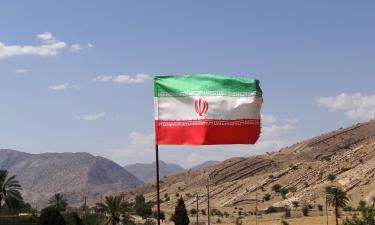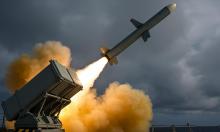Chavez: Oil prices could hit $100 a barrel
The Venezuelan president said the war in Iraq could lead crude markets to go haywire. The South American country plans to wrap up an agreement to create an oil consortium in the Caribbean.
High oil prices have been a blessing for Venezuela's strained economy. After two years of political turmoil it helped Hugo Chavez rule to increase social aid and to expand its GDP up to 10% this year. As world's fifth oil producer, they have also positioned Venezuela as a key country in the region.
With the above in mind is easy to understand why Chavez is concerned on a jump in oil prices, which may lead markets to go haywire. According to him, it is not possible to rule out that the war in Iraq could push oil prices to a record $100 USD a barrel. This scenario could end with the precarious equilibrium between oil producers and big purchasers.
"This war is a powder keg,'' said Chavez, after meeting with Brazil's President Luiz Inacio Lula da Silva. "It could take the price of a barrel to $100 USD. I hope it doesn't.'' However, Chavez declined to comment on OPEC's decision to raise output by 1 million barrels a day.
Earlier, the Venezuelan Government had confirmed it didn't plan to raise its own production, now at 2 million barrels a day. According to Chavez, world markets are "oversupplied.'' Therefore, the reason for the high oil prices is merely political, only connected to the bad decision taken by the White House to lead an invasion against Iraq.
At the same time, and taken advantage of the oil bonanza, Venezuela keeps on trying to consolidate its power in the region by making use of its strategic resources. Recently, Caracas has been mandated by several Caribbean countries to draft a multilateral agreement to fast-track the implementation of the PetroCaribe initiative.
This was one of the major decisions that emerged from the latest meeting between Venezuela and Caribbean energy ministers. PetroCaribe is the brainchild of Venezuelan President Hugo Chбvez and is designed to reduce the effects of high oil prices on the region by offering the energy-dependent islands of the Caribbean petroleum products at significantly reduced costs.
Venezuela is discussing a similar agreement with Brazil and Argentina, and eventually Mexico, in order to grant energy equilibrium and self sufficiency in Latin America. This week, Argentina took an important step in this sense, as country’s Infrastructure Minister, Julio De Vido, went to the National Congress to speed up the creation of a new state owned oil company. Argentina had sold its oil monopoly to the Spanish Repsol in 1994.
Subscribe to Pravda.Ru Telegram channel, Facebook, RSS!




